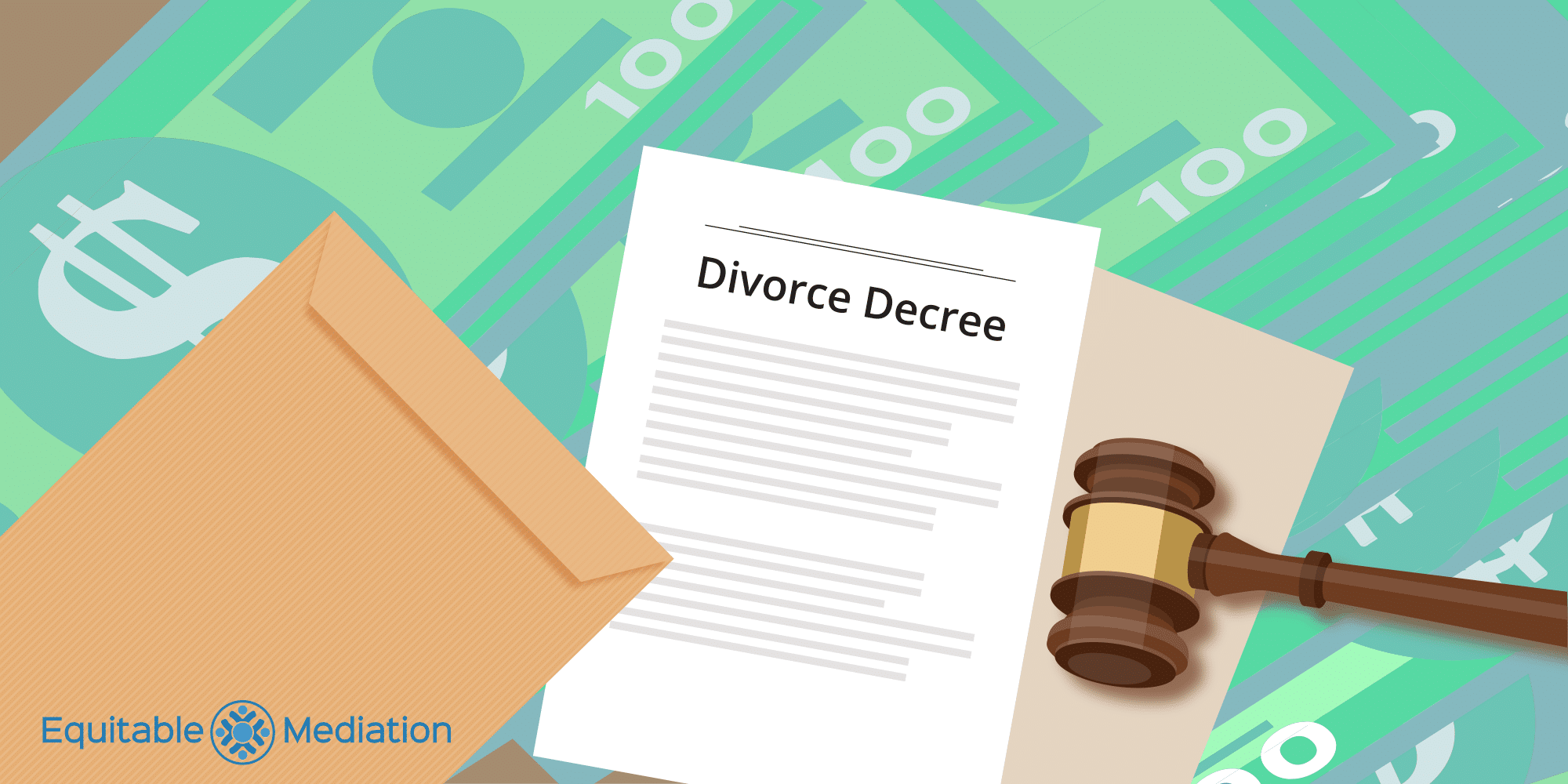“I want to divorce my wife.” It’s something I hear a lot as a divorce coach.
I’ll bet it’s not a decision you made quickly. In fact, most husbands take at least two years from the time the thought first enters their mind until the time they tell their spouse they want to end the marriage.
Wanting to leave your spouse does not make you a bad person.
So what happens when as an unhappy spouse, you finally muster up the courage to have that difficult conversation, only for your wife to tell you she’s not ready or unwilling to take that step? Or, she doesn’t deal with the situation at all, thinking that if she refuses to cooperate, the divorce process won’t or can’t happen?
What can you do when as a husband you want a divorce but your wife doesn’t? Will you be forced to remain in an unhappy marriage with a reluctant spouse, feeling guilty for the rest of your life, because your wife knows you want out? Or be forced to blow things up with lawyers?
Let’s take a closer at a step-by-step action plan which when followed, will (hopefully) help your wife understand you want a divorce, and agree to move forward in a peaceful and cost-effective manner.
I want a divorce but my wife doesn’t: The truth about getting a divorce

There’s a common misconception that when a husband wants a divorce, his spouse has the option of not giving him one.
But the reality is that if you want to get a divorce, then you’ll both be getting a divorce.
Unlike a marriage which takes two people to enter into, getting a divorce is an action that can be taken by just one spouse.
Naturally, in order for a husband to divorce his wife, the divorce needs to be granted by the courts. And a divorce decree will only be possible after all relevant legal and financial issues are negotiated and resolved to the former married couple’s mutual satisfaction. But the divorce process itself, only takes one person to initiate it.
You’re well within your rights to serve your wife with divorce papers
Because as much as you are well within your rights to file a divorce petition with the courts, in her own mind, your wife is well within her rights to argue any and all points she sees fit with respect to alimony (spousal support / maintenance), child support, property division and the arrangement for parenting your children.
This can go on for a very long time – as long as the two of you continue to litigate and you have the money to keep paying your divorce lawyers. If you want an uncontested divorce but your partner doesn’t, it looks like you’ll have no choice but to hire a divorce attorney and litigate, right?
Wrong.
But be prepared! As taking the divorce attorney / litigation route with a reluctant spouse will only make things worse
Not only can you look forward to a long, drawn-out battle with a hurt and angry soon-to-be ex-wife, but you’re also looking at a hefty price tag in the tens or hundreds of thousands of dollars.
Money that could be better spent on providing financial support to your soon-to-be-ex and/or children, or rebuilding your respective financial futures.
So before you go out, retain a divorce lawyer and serve your spouse divorce papers, understand there is a better option. But only if your wife is willing to cooperate and not be passive aggressive.
What can I do when I want a divorce from my wife?
If you want to divorce as peacefully as possible, you can end the marriage and get a no-fault divorce without a lawyer using mediation.
A good mediator will:
- Help both of you discuss your future and focus on moving forward, instead of arguing about your past relationship;
- Help to build trust and agreement through an open and transparent good-faith negotiation;
- Empower both you and your spouse to make the decisions that are in your mutual best interests and the best interests of your children.
- And offer the services of a divorce coach like me to help with the grieving process that a woman (and a man) ultimately go through when they decide to end their marriage.
Doing so will help you come to agreements you both find fair more peacefully, cost-effectively and in a lot less time than if you each hired a divorce lawyer and fought it out.
If you mediate, you’ll both be completely in control of the process as well as what your agreement and future looks like. Ensuring that each of you (and your children) gets what you want, need and deserve. While preserving the wealth you’ve worked so hard to acquire.
So if you’re in a situation where as a husband, you want a divorce but your wife doesn’t, the best way to move forward is to mediate your divorce.
But mediation is a voluntary process so both of you need to be willing to mediate.
To help move your divorce proceedings in the direction of mediation, here are some things you can do to try and convince your spouse that mediation is the way to go:
1. Help your wife understand that the divorce proceeding is inevitable.
Perhaps your spouse doesn’t believe you’re serious about ending the marriage. Or thinks if you try marriage counseling one more time, the hope is your relationship will get better – especially if she’s still in love with you – and you’ll stay married.
You need to find the best way to tell your wife you want a divorce and let her know that when you talk, no matter how much she resists, it’s still going to happen.
It can actually be beneficial to enlist a marriage and family therapist or couples counselor to help you break this difficult news to your partner in person because it can provide a safe space to share your feelings. Then give your wife time to mentally process the information and (hopefully) accept the reality of the situation.
Men tend to be more “action-oriented” and want to move things forward as quickly as possible. But this is a time when patience is a virtue so don’t pressure her.
Remember, you’ve been thinking about getting a divorce or separation for a long time and your partner is just learning this news. She needs time to digest what’s going on in your relationship and process her feelings around the idea, so be compassionate and kind.
When she’s in the right frame of mind, take the time to explain to your wife the benefits of divorce mediation.
2. Tell your wife that divorce mediation is best for your children.

Let your wife know that if she leaves you no choice but to litigate, it will have a lasting negative impact on your children. Because that’s the last thing either of you would want for your kids. Joe still remembers his parents’ litigated divorce process and it’s been more than 30 years. It ruined any good memories he had of his childhood and teenage years as they were all spent in and out of courtrooms and lawyers’ offices.
Mediation, on the other hand, puts the needs of your children first which is exactly how it should be. Mediation encourages positive conflict resolution, open communication and amicable negotiation by divorcing spouses. And lets you make decisions as parents instead of litigants.
Mediation is not based on blame, fear, or guilt. And doesn’t require either of you to settle on an agreement neither of you is happy with.
By mediating your divorce, you can preserve your relationship instead of destroying it. And you can set a good foundation for co-parenting instead of putting your kids squarely in the middle of your divorce, the way Joe’s parents did to him.
No loving mom wants to deliberately hurt her children. So if your wife would rather the kids see both of you acting maturely and putting them first, mediation is the best way to go.
3. Help your wife understand that settlements reached using mediation are more fair and equitable to both of you.
There’s no way your wife could want to let a divorce lawyer or unsympathetic family law judge in court make life-changing decisions about her children and financial future.
Especially since outcomes by court order are always uncertain in a litigated divorce case.
What many wives fail to realize is that the legal system is broken when it comes to family matters. The laws are unclear, many divorce attorneys are out for their own financial gain and you never know what side of an issue a family law judge will rule on in court.
On the other hand, mediation enables both of you to control the terms of your divorce settlement – out of court. And when she (and you) gets a direct say in creating the terms of the settlement, you’re both more likely to find it fair and equitable.
4. Make the case to your partner that mediation is the most peaceful and cost-effective divorce process.

Tell your wife you want your divorce to be as amicable as possible. And tell her you don’t want both of you to have to spend tens or hundreds of thousands of dollars on your divorce process fighting with lawyers.
And that the more you spend on legal fees, the less money you’ll have left over to pay child support, fund your retirements or keep her and the kids in the house. You’d rather preserve your collective financial resources so you can take care of your kids and invest in your futures.
5. What can I do when I want a divorce but my wife doesn’t? Reassure her.
The biggest reason you may be left thinking, “I want a divorce but my wife doesn’t,” is because your wife is scared. Especially if it’s a long-term marriage, she’s facing divorce as a stay at home mom, and hasn’t worked outside of the marital home in years.
Child support and alimony laws are unclear and your wife may be frightened because she doesn’t know how she’ll be able to support herself or keep the kids in the house after the marriage ends and you’re no longer husband and wife. So if you want to proceed with divorce or separation you need to reassure your spouse that this wasn’t a decision you made lightly. And there’s nothing she can do to change your mind or feelings about the relationship.
Let her know the children are your number one priority. And that you’ll do everything you can to ensure your divorce or separation agreement is fair and you both have enough to live and that mediation is the best way to do that.
If you do these things, you just might improve the likelihood she’ll agree to a divorce.
Bonus tip. Involve your wife in choosing a divorce mediator.
You already know that divorce mediators are neutral third parties that don’t take sides. It’s their job to ensure that both you and your wife’s needs and interests are fully explored, while helping you create together, a mutually agreeable settlement. But your spouse may not know that. Thinking since you found the mediator, that they’re your mediator. And are going to take your side.
By involving your spouse in choosing a divorce mediator, she may feel more at ease with both pursuing a divorce, and using mediation to do so. Thereby improving your chances of not only getting your wife to agree to divorce, but having a peaceful one at that.
Key takeaways
- Remember that wanting a divorce doesn’t make you a bad person – it’s often a decision that takes years of careful thought and consideration before being voiced.
- While marriage requires two willing people, divorce can legally proceed with just one spouse’s decision. However, the process will be much smoother and less costly if both partners can work together.
- Taking time to be patient and compassionate with your wife is crucial – while you’ve had time to consider this decision, the news may be completely unexpected for her. Give her space to understand and process her emotions.
- Consider using a marriage counselor or family therapist to help create a safe space for sharing this news with your wife. This professional setting can help both partners express their feelings and begin processing the situation.
- Mediation offers a more peaceful and cost-effective approach compared to litigation. It allows both partners to have direct input in decisions about their future, especially regarding children and finances.
- When discussing divorce with your wife, focus on reassuring her about priorities like the children’s wellbeing and financial security. Many spouses’ resistance comes from fear about what’s next, especially in long-term marriages or when one partner hasn’t worked outside the home.
- Consider involving your wife in choosing the mediator – this helps build trust in the process and shows your commitment to finding fair solutions together.
Remember that preserving a respectful relationship, especially when children are involved, is valuable for everyone’s well-being. Mediation can help build a foundation for positive co-parenting rather than creating lasting conflict.






